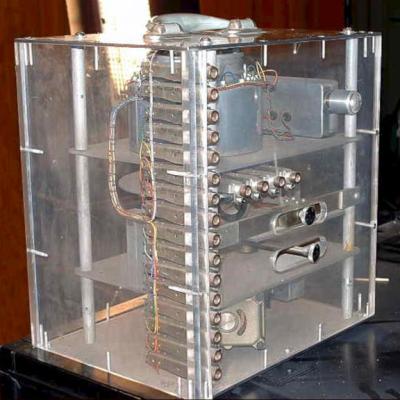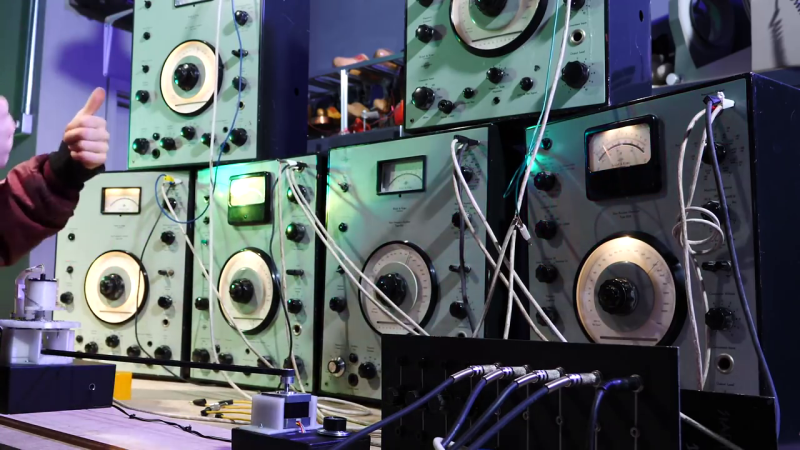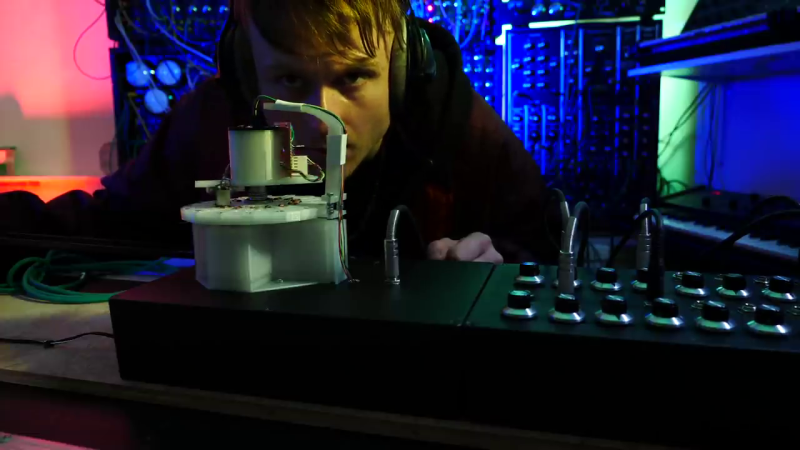Musician and electronic musical machine builder [Sam Battle] has recreated the unusual Crystal Palace Audio Fader over at Look Mum No Computer. The Crystal Palace was a rotary fader developed by engineer Dave Young at the BBC Radiophonic Workshop back in the late 1960s. Doctor Who fans might recognize it from the “The Krotons” series theme music. It’s a wild mechanical mixer, which fades between sixteen different inputs to produce its output by using a variable speed rotating pickup.

After Young built the prototype, three of these were made and put into cases cut out of scrap plexiglass) from a dumpster — hence they became known as Crystal Palaces after the 1851 glass and iron structure of the same name.
[Sam] decides to build this using some inductors and an old tape head. After proving out the concept on a breadboard, he mounts sixteen inductors on a 3D-printed circular frame. The rotating pickup transfers the signal via slip-rings at the top. An array of input jacks and level pots are mounted on the enclosure’s face plate, which contains a vector board full of op amps that drive the coils. Strictly speaking, the original fader used capacitive coupling, not inductive, but that doesn’t detract at all from this project. And as he states upfront, he intentionally didn’t dig too deep into the original, so as to put his own spin on the design.

We love how [Sam] starts off testing with a motor that’s anchored, not by duct tape, but by the roll of duct tape (he later tidies that up a bit). And near the end, don’t miss when he pulls out six (that we can count) 1960s-era B&K wobbulators and uses them to drive the fader in period-suitable style — as one does. Thanks to [Taper] for the tip.
















Woo, first time I’ve had a tip published.
My favorite filip Sam’s done with the design on this is the normalization on the input jacks. Were they each wired in separately, you’d need to provide sixteen signals, but by using the switches in the jacks, a signal to one cascades out to each subsequent input in its row. And since each input has its own level knob, you can get amazing textures from even just one input. I need to build something akin to this.
I’m actually surprised this post got so little attention here
Cool!